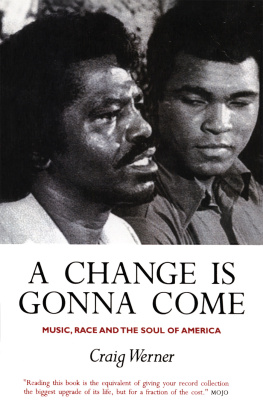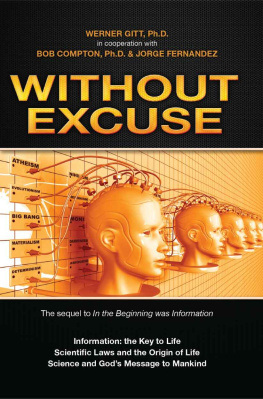First published 2007 by Transaction Publishers
Published 2017 by Routledge
2 Park Square, Milton Park, Abingdon, Oxon OX14 4RN
711 Third Avenue, New York, NY 10017, USA
Routledge is an imprint of the Taylor & Francis Group, an informa business
Copyright 2007 by Taylor & Francis.
All rights reserved. No part of this book may be reprinted or reproduced or utilised in any form or by any electronic, mechanical, or other means, now known or hereafter invented, including photocopying and recording, or in any information storage or retrieval system, without permission in writing from the publishers.
Notice:
Product or corporate names may be trademarks or registered trademarks, and are used only for identification and explanation without intent to infringe.
Library of Congress Catalog Number: 2007002254
Library of Congress Cataloging-in-Publication Data
Cahnman, Werner Jacob, 1902-1980
Social issues, geopolitics, and Judaica/Werner J. Cahnman; Judith T. Marcus
and Zoltan Tarr, editors.
p. cm.
Includes bibliographical references and index.
ISBN 978-0-7658-0364-1
1. Jews--Social conditions. 2. Judaism and social problems. 3. Cahnman,
Werner Jacob, 1902-I. Marcus, Judith, 1929-II. Tarr, Zoltn. III. Title.
HN40.J5C34 2007
305.696091821--dc22
2007002254
ISBN 13: 978-0-7658-0364-1 (hbk)
This volume brings together thirty-four essays and articles, some of them hitherto unpublished, by Werner Jacob Cahnman, representing four decades (19401980) of an extraordinary, multidisciplinary scholarly career, encompassing the experiences of a German Jewish refugee, an economist turned sociologist and a scholar of Judaism.
Personal and Autobiographical Writings begins with the essay: My Relation to Jews and Judaism, a confessional statement from the end of his life, is the most informative piece about the life and work of Werner J. Cahnman.
Two essays deal with the Central Verein (Central Association of German Citizens of the Jewish Faith, C.V.), the largest defense organization of German Jews, whose syndikus he was. The authoritative history of the C.V. was written by Avraham Barkai, who wrote to us that in my C.V. book, I mentioned Cahnman as one of the most original thinkers in this circle (2005.08.01). He also encouraged us to research the C.V. archives, now in Jerusalem, which contain many files of relevant information about Cahnmans activities.
Jewish Intellectuals and the C.V. most likely written in the late 1940s, recalls Cahnmans meetings with Arthur Cohen, Stefan Zweig, Erich von Kahler and others. Another essay, The Nazi Threat and the Central Vereina Recollection, most likely from the 1960s, attempts to account for Jewish reactions to anti-Semitism in Germany, for the motivations and actions of common people, those who were engaged in the good fight themselves. Both Zionists and non-Zionists were reacting to the experience and the perceived threat of anti-Semitism, although in different ways. Cahnman argues that there was more than one C.V. ideology in evidence in those years. The diverging positions of Alfred Wiener, Hans Reichmann, and Ludwig Hollaender, three leading personalities, are discussed in some detail, as distinct from Cahnmans own position insisting on the idea of a comradeship of peoples, otherwise, the threatening forces of a new barbarism might overrun us all. Here he was in the company of Leo Baeck, Jacob Wasserman, and Erich Kahler. The Nazis aim was separation, atomization, destruction of Jewry; and the C.V. was determined to maintain contacts between Jews and Gentiles.
In The Education of Rudolf Hess, a historical and sociological writing, Cahnman tells the story of his encounter with the most mysterious prominent member of the Nazi movement and reports in some detail on the special preoccupation of German scholarship with Raum (space) from Friedrich List and Alexander von Humboldt, leading to Hitlers manic obsession with Lebensraum and all its disastrous consequences. We learn that it was Karl Haushofer at the University of Munich, teacher of Cahnman and Hess, who awoke their interest in problems of Raum . We do not know how much of Haushofers ideas were transmitted to Hitler via Hess, we only experienced the tragic course of events when he attempted to put those theoretical ideas into practice during the six years of World War II.
Stefan Zweig in Salzburg (1942), written on the occasion of Zweigs suicide in Brazil, relates the encounter with the great writer in January 1931 and presents the bitter reflections of Zweig on the state of Jewry in Vienna and Austria in general.
Werner Cahnman at Seventy: An Interview (1973) is a probing piece about many aspects of Cahnmans past and ongoing activities and interests. Cahnman's scholarship and activism were symbiotic, and most of his papers in this volume show that his scholarly concerns are rooted in the practical problems he and all German Jewry faced.
Like Martin Buber, Cahnman considers sociology a discipline dealing with human relations and the sociology of Jews under three headings: documentation, interpretation and the stressing of the theme of symbiosis and conflict. Now conflict has been transposed to another level in the state of Israel; and we have the problem of two peoplesJews and Arabsliving side-by-side in the same country. The plain fact is that both Jews and Arabs are at home in that area and that they must either co-exist or destroy each other. Hence, some kind of federal structure will be of the essence, if peace ever comes to Israel and her neighbors.
In Robert A. Park at Fisk (1978), Cahnman reminisces about one of his first mentors in American sociology, an influential Chicago sociologist, largely forgotten today. Robert A. Park secured an appointment at Fisk for Cahnman and assigned him the research project of race relations outside the United States, concentrating on the Caribbean area and North Africa. Cahnman also discovered Parks comparative historical inclinations during many of their discussions about the Jewish problem.
Common ground for the relationship was that Park had expressed the desire to see the principles of human ecology fortified by the methods of geopolitics and applied to the problems of the international scene.
In Germany: The Time has Come for Friendship (1973), Cahnman argues that it is high time that the Jewish community in America squarely faces the issue of German-Jewish relations. He argues against the ritualistic genuflections we have become addicted to because they will not help solve the problems of the present period in history. Born and educated in Germany, although driven out like many of his friends living on the east coast of the U.S., he remained attached, perhaps uncritically, to the notion of German-Jewish symbiosis that many German Jews deny. He did not embark on the Holocasut business but built his Rashi Association for the Preservation of Jewish Cultural Monuments in Europe, acted for the reconstruction of the Worms Lehrhaus, cemeteries, tirelessly lobbied and corresponded with high-ranking officials for the establishment of departments of Jewish studies at universities. He returned to his alma mater, Ludwig-Maximilians-Universitt Mnchen as a Fulbright lecturer and conducted an empirical survey of young German students, published Voelker und Rassen im Urteil der Jugend.












